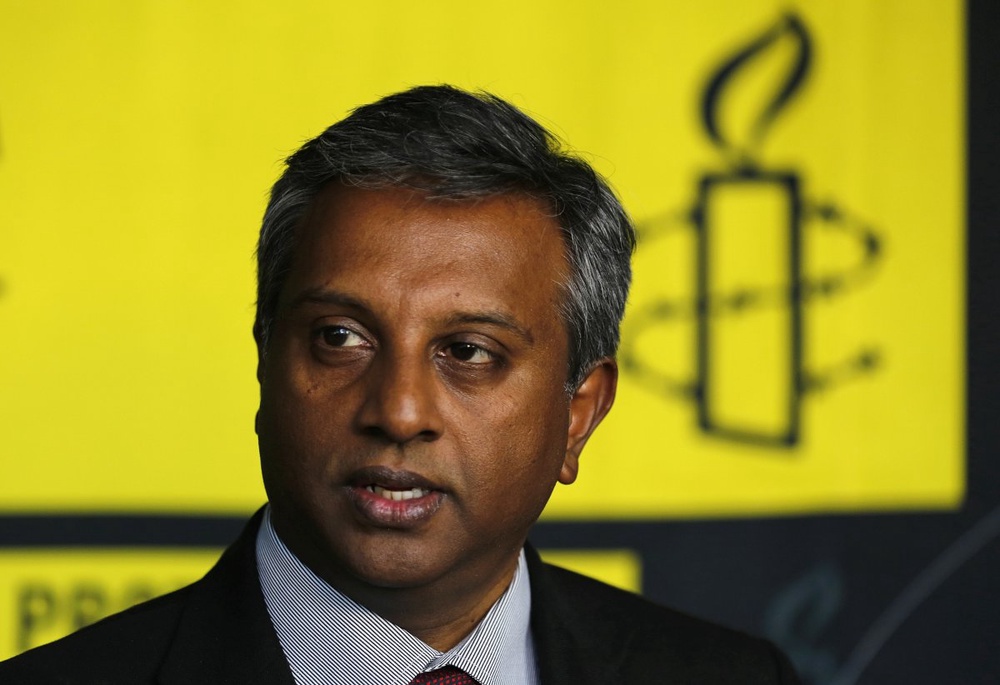
Amnesty International on Thursday urged governments to stop criminalising people's sex lives and instead protect their right to control their own bodies, AFP reports. The London-based human rights organisation launched a global two-year campaign aimed at defending sexual and reproductive rights against state control. Amnesty said that around the world, people were "coerced, criminalised and discriminated against" for making choices about their bodies and their lives. It said that in many cases, the state, medical professionals or relatives undermine people's freedom to make decisions about their bodies, sexuality and reproductive lives. "It is unbelievable that in the 21st century some countries are condoning child marriage and marital rape while others are outlawing abortion, sex outside marriage and same-sex sexual activity -- even punishable by death," said Amnesty secretary general Salil Shetty. "States need to take positive action -- not just by getting rid of oppressive laws but also promoting and protecting sexual and reproductive rights, providing information, education, services and ending impunity for sexual violence." The "My Body My Rights" campaign, which targets young people via social media, focuses on seven countries -- Algeria, Burkina Faso, El Salvador, Ireland, Morocco, Nepal and Tunisia. Amnesty said that in Algeria and Tunisia, and until January in Morocco, a rapist could avoid prosecution by marrying his victim. It said around 100 women a day were raped in Morocco. The group said it would campaign to decriminalise abortion in Ireland, citing the case of Indian national Savita Halappanavar who died after being refused a termination. Following the case, abortion became legal in July in limited cases where the mother's life is at risk. In Burkina Faso, many young people struggle to access contraception and sexual health services, while in El Salvador, gender-based violence remains widespread, Amnesty said. It said that in Nepal, around 600,000 women suffer from uterine prolapse, a painful condition often triggered by carrying heavy loads during pregnancy, having children very young and having several pregnancies in quick succession. "We want to help the next generation realise and claim their sexual and reproductive rights," Shetty said. "Together we want to send a clear and unequivocal message to governments that this kind of over-reaching control violates human rights and is simply unacceptable."





Amnesty International on Thursday urged governments to stop criminalising people's sex lives and instead protect their right to control their own bodies, AFP reports.
The London-based human rights organisation launched a global two-year campaign aimed at defending sexual and reproductive rights against state control.
Amnesty said that around the world, people were "coerced, criminalised and discriminated against" for making choices about their bodies and their lives.
It said that in many cases, the state, medical professionals or relatives undermine people's freedom to make decisions about their bodies, sexuality and reproductive lives.
"It is unbelievable that in the 21st century some countries are condoning child marriage and marital rape while others are outlawing abortion, sex outside marriage and same-sex sexual activity -- even punishable by death," said Amnesty secretary general Salil Shetty.
"States need to take positive action -- not just by getting rid of oppressive laws but also promoting and protecting sexual and reproductive rights, providing information, education, services and ending impunity for sexual violence."
The "My Body My Rights" campaign, which targets young people via social media, focuses on seven countries -- Algeria, Burkina Faso, El Salvador, Ireland, Morocco, Nepal and Tunisia.
Amnesty said that in Algeria and Tunisia, and until January in Morocco, a rapist could avoid prosecution by marrying his victim. It said around 100 women a day were raped in Morocco.
The group said it would campaign to decriminalise abortion in Ireland, citing the case of Indian national Savita Halappanavar who died after being refused a termination.
Following the case, abortion became legal in July in limited cases where the mother's life is at risk.
In Burkina Faso, many young people struggle to access contraception and sexual health services, while in El Salvador, gender-based violence remains widespread, Amnesty said.
It said that in Nepal, around 600,000 women suffer from uterine prolapse, a painful condition often triggered by carrying heavy loads during pregnancy, having children very young and having several pregnancies in quick succession.
"We want to help the next generation realise and claim their sexual and reproductive rights," Shetty said.
"Together we want to send a clear and unequivocal message to governments that this kind of over-reaching control violates human rights and is simply unacceptable."


 +7 (777) 001 44 99
+7 (777) 001 44 99















































